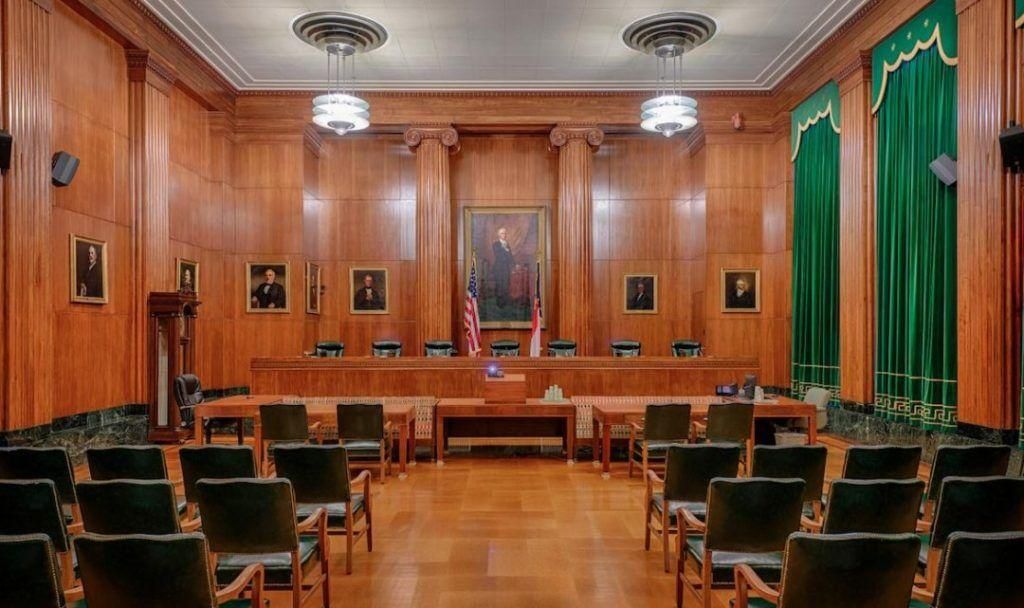Editorial: Justice Newby needs to do the job voters elected him to do

CBC Editorial: Wednesday, Feb . 22, 2023; editorial #8828
The following is the opinion of Capitol Broadcasting Company
What is the job of North Carolina’s Supreme Court?
North Carolina’s Constitution is clear. “The Supreme Court shall have jurisdiction to review upon appeal any decision of the courts below, upon any matter of law or legal inference,” says Article IV, Section 12 (emphasis added).
It is basic. When the legislature passes a law and there’s some question about it, the courts examine it and make a determination. Was it properly enacted? Does it conflict with provisions of the U.S. or state constitutions? Does it contradict other laws on the state or federal level: or other laws?
For example, that is exactly what the state Supreme Court has done on three separate occasions in 1997, 2004 and 2022 when it comes to whether the state – the executive branch through the governor and State Board of Education (and by inference the General Assembly in its power of the purse) – has met the State Constitution’s mandate to give EVERY child in North Carolina the opportunity to receive a quality education.
The State Constitution is the original voice of the people and it is through that document that the people grant elected and appointed state officials – the Council of State, the General Assembly and the courts --- their ability to act.
But to read opinions and comments issued by current state Chief Justice Paul Newby, his court has no role in much of that. What the state legislature does, particularly under the current leadership (that includes the father of one of Newby’s fellow justices), goes, period. No questions asked. Justice takes a backseat to ideology and partisanship.
If the legislature doesn’t want to fulfill an obligation the court says the state has, Newby says fine. No problem.
During a hearing on the legislature’s drawing of voting district maps, Newby suggested that there was no requirement that North Carolina elections be fair. When a lawyer noted the Pennsylvania Supreme Court struck down voting maps because they violated that state’s requirement for “free and equal” elections, Newby offered up that there was no such provision in the North Carolina Constitution. “We have ‘free.’ We don't have ‘fair.’ They have ‘free and fair, correct?” Newby asked.
In a recent dissent, written by Justice Phil Berger Jr., (the son of the state Senate leader Phil Berger who became a party in the case) and joined by Newby, legislative power was termed “absolute.”
“If legislative power over appropriations is absolute, then the judicial branch has no role in this endeavor,” said the dissent. “The General Assembly determines and develops educational policy through statutes and appropriations.”
When it comes to determining whether the legislature follows the law when it draws voting districts, Newby said it wasn’t the court’s job. “When the constitution expressly assigns a task to a particular branch of government, the constitution prohibits the judicial branch from intruding into that task. Such intrusion violates separation of powers; the issue is nonjusticiable,” he wrote in a December 2022 opinion.
He further states: “Partisan gerrymandering claims present nonjusticiable political questions because the North Carolina Constitution textually assigns the issue of redistricting to the legislature and because there is no judicially discernible, manageable standard by which courts may adjudicate such claims.”
Newby goes on to say: “The legislative power is vested in the General Assembly because ‘all people are present there in the persons of their representatives,’ … therefore, the people act through the General Assembly.”
Who does he think the 5.4 million people who voted in the 2020 state Supreme Court election – 2.7 million who voted for him -- are? They’re the same people who cast ballots in legislative races. Do their votes count less when they cast ballots for judicial officers?
North Carolina’s Constitution specifically sets the judicial, executive and legislative branches of government as “forever separate and distinct” so each can be a check and balance on the others. It is Chief Justice Paul Newby’s job to protect the North Carolina Constitution. He’s been shirking that responsibility.
Capitol Broadcasting Company's Opinion Section seeks a broad range of comments and letters to the editor. Our Comments beside each opinion column offer the opportunity to engage in a dialogue about this article.
In addition, we invite you to write a letter to the editor about this or any other opinion articles. Here are some tips on submissions >> SUBMIT A LETTER TO THE EDITOR









